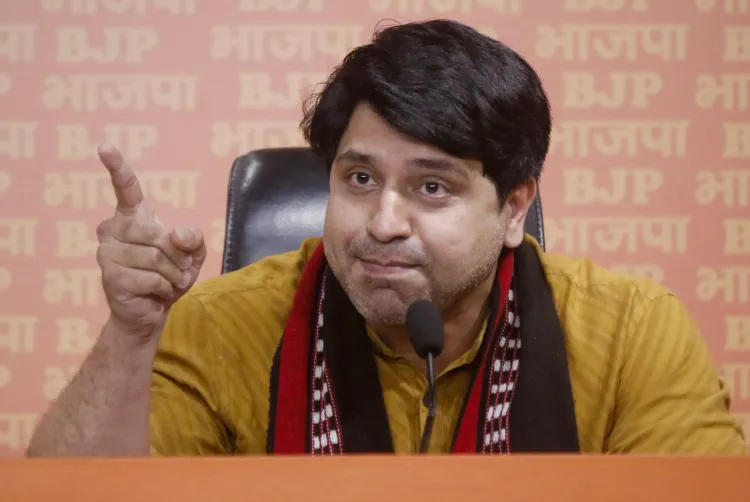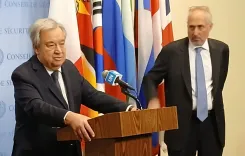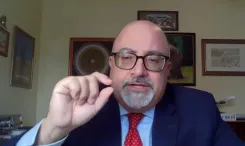Are the Opposition’s Double Standards on SIR and LIC Justified?

Synopsis
Key Takeaways
- SIR is crucial for electoral integrity.
- Opposition parties display contradictory stances on SIR.
- LIC's investment strategies are under scrutiny.
- The Supreme Court has not restricted SIR implementation.
- Poonawalla emphasizes the need for transparency.
New Delhi, Oct 27 (NationPress) The introduction of SIR (Special Intensive Review) across 12 states has sparked significant debate in the political arena of the nation. Various political factions are responding differently to the Election Commission's ruling.
Bharatiya Janata Party's Shehzad Poonawalla expressed his support for the decision, emphasizing that the Election Commission holds the constitutional authority to oversee elections and uphold the transparency and legitimacy of the electoral process.
Poonawalla highlighted the contradiction within the INDIA Bloc, which opposes SIR but simultaneously advocates for its implementation ahead of local elections in Maharashtra. He stated, “This indicates that SIR is deemed acceptable in Maharashtra but not in other regions. They resist SIR in Delhi but raise no objections when it is established in Bihar.”
The BJP leader pointed out that the Supreme Court has not placed any restrictions on SIR.
Poonawalla remarked, “These individuals file misleading petitions in the Supreme Court. The Grand Alliance claims that the NRC is a method to enforce the NRC. The TMC, DMK, and Congress perceive it as a conspiracy. Yet, if the NRC existed before 2004, were they considered backdoor NRCs? If the NRC is executed, it’s miraculous, but if the Election Commission does it, it’s illegal.”
He expressed astonishment at the varied responses to the NRC, with Congress opposing it, the Samajwadi Party supporting it, while Omar Abdullah remains non-committal.
Poonawalla clarified that this is not about NRC, but rather a strategy to safeguard personal interests.
“This represents a 'triple D' policy; D for deficit, D for distortion, and D for riot,” he stated.
Regarding the LIC situation, Poonawalla described it as an example of a contract-killing scheme, orchestrated by foreign entities, driven by an economic terrorism mindset.
He noted that as India's economy expands, private players like the Adani Group are establishing significant global footprints while foreign companies are reaping substantial profits by investing in these Indian ventures.
“The LIC of India (a public sector entity), which has minimal exposure to the Adani Group and has maintained this investment for years, is being unjustly targeted with unfounded claims, aimed at instilling a sense of uncertainty and economic instability, a deliberate act that undermines the economy,” he asserted.
Poonawalla indicated that the intention behind this effort is to instill fear among investors and diminish their confidence.
“The reality is that LIC operates independently and bases its decisions on its own assessments,” he added.
He stated that LIC has received returns from the Adani Group that surpass the original investment, estimated at around 59 percent.
“This rate exceeds LIC's market capitalization. Its profit margins are superior, contrasting with the losses it faced before 2014,” concluded Shehzad Poonawalla.










